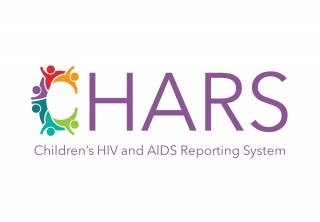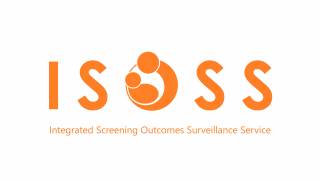Our work is focussed on understanding infections in pregnancy and childhood, with an emphasis on prevention of vertical (mother-to-child) transmission, delineating risks for adverse outcomes and addressing key questions central to clinical practice and public health.
We conduct active research, surveillance programmes and projects on established and re-emerging infections including HIV, viral hepatitis, syphilis, Zika virus and other arboviruses, conducted in diverse settings, including the UK, elsewhere in Western Europe, Ukraine, Russia, Jamaica, Haiti, Ecuador, Brazil, Malawi and South Africa.
We also manage and coordinate the Integrated Screening Outcomes Surveillance Service (ISOSS) which monitors the screened for infections in pregnancy (HIV, syphilis, hepatitis B), and the Children's HIV and AIDS Reporting System (CHARS) on behalf of the NHS Infectious Diseases in Pregnancy Screening Programme and NHS England.

- Children's HIV and AIDS Reporting System (CHARS)


The Children's HIV and AIDS Reporting System (CHARS) conducts long-term clinical surveillance of children living with HIV in England for the NHS Infectious Diseases in Pregnancy Screening Programme, NHS England and NHS Improvement and the UK Health Security Agency's National Infection Service, with Regulation 3 approval.
The purpose of CHARS is to monitor outcomes and quality of services and to contribute to the national epidemiological monitoring. The main objectives of the paediatric HIV surveillance are:
- to provide data for public health surveillance of HIV infections among children living with HIV
- to monitor the quality of care of children living with HIV until transition to adult services, including producing quality of care indicators
- to support NHS commissioning of services
- Integrated Screening Outcomes Surveillance Service (ISOSS)


The Integrated Screening Outcomes Surveillance Service (ISOSS) monitors screening outcomes for the NHS Infectious Diseases in Pregnancy Screening Programme (IDPS) with Regulation 3 approval.
The goal of the ISOSS is to collect, analyse and report obstetric and paediatric data on HIV, syphilis and hepatitis B in pregnant women and children in order to:
- assess key outcomes of the IDPS Programme
- assess the IDPS Programme's impact on prevention of vertically-acquired HIV, hepatitis B and syphilis
- protect the health of women with and infants exposed to these infections
IDPS Clinical Expert Review Panels
The ISOSS team investigate all new vertical transmissions of HIV and syphilis occurring in England. ISOSS interview all clinicians involved in the care of the mother and baby during and after pregnancy. Interviews are conducted across specialities including paediatrics, maternity and specialist care.
Detailed anonymised case reports are taken to the IDPS Clinical Expert Review Panels (CERP). The panels consist of relevant clinical specialists including maternity, laboratory, paediatrics, sexual health services as well as representatives from BASHH and BHIVA.
The purpose of the panels is to:
- establish the circumstances surrounding the transmission
- identify and contributing factors and learning points
- feed recommendations into the IDPS/ISOSS team
- HIV Cohorts
European Pregnancy and Paediatric Infections Cohort Collaboration (EPPICC)
- Zika
PhD Research Projects

- Health and Survival of Children HIV-exposed and Uninfected in the UK
Laurette Bukasa (student), Prof. Claire Thorne (primary supervisor), Dr Pia Hardelid (subsidiary supervisor), Prof. Mario Cortina-Borja (subsidiary supervisor)
Summary: Treating a woman living with HIV in pregnancy greatly reduces the risk of her transmitting the infection to her baby as well as preventing disease progression. The success of prevention of vertical (mother-to-child) transmission programmes worldwide has been driven by antenatal HIV screening and widespread distribution of antiretroviral drugs in pregnancy. Whilst the number of children who are vertically infected during pregnancy is dramatically decreasing, the population of children who are HIV-exposed and uninfected (CHEU) is increasing.
There is evidence to suggest that CHEU have poorer growth, morbidity and mortality outcomes than children who are HIV-unexposed. The evidence base on the effect of exposures (e.g. to HIV and antiretrovirals) during gestation and in the period following birth is growing, but remains relatively limited with respect to high-income countries.
This project uses data from UK-based surveillance of HIV in pregnancy (ISOSS), specifically data on the pregnancies of women with a known diagnosis of HIV and their children. This population-based data will be used to explore in utero exposures, maternal characteristics and birth outcomes of CHEU over time. The project will also describe and evaluate cancer and death incidence in this population using ongoing data linkage between ISOSS and NHS Digital.
The project will be the first to evaluate the long-term safety of antiretroviral use in pregnancy for CHEU in the UK and provide an evidence base for CHEU health inequalities as they pertain to birth, cancer and mortality outcomes in the UK. Further details about this project can be found on PHE data release register.
- HIV Treatment Evolution in Europe: What It Means For Pregnant Women and Their Infants
Georgina Fernandes (student), Prof. Claire Thorne (primary supervisor), Dr Elizabeth Chappell (subsidiary supervisor), Dr Alasdair Bamford (subsidiary supervisor)
Summary: While there have been major successes in early HIV diagnosis and treatment initiation which have resulted in high rates of viral suppression in pregnancy and low vertical transmisssion rates in Europe, pregnant women remain a priority population for treatment optimisation.
The treatment of HIV in Europe has evolved over recent years to include newer and more potent antiretrovirals with important implications for pregnant women and their infants who have traditionally been viewed as a vulnerable population and therefore excluded from pre- and post-licensure drug trials. This has meant information to enable women and their health care providers to make informed treatment choices has been limited. As more pregnant woment are conceiving on antiretroviral therapy, which means the foetus is exposed to antiretrovirals for the entire gestation period, the priorities have shifted to concerns regarding the safety of these antiretrovirals in pregnancy, in particular for newer drugs with limited safety data.
Using individual patient data on pregnant women living with HIV in Europe and their infants, the objectives of this project are to:
- investigate recent patterns (temporal and geographic) of antenatal ART use (i.e., at conception and in women newly initiating ART)
- delineate policies and practices around the use of neonatal prophylaxis, particularly risk stratification approaches based on maternal characteristics and treatment
- assess use (including off-label) of specific antiretroviral regimens, including long-acting injectables, in pregnancy and investigate the associated pregnancy, birth and neonatal outcomes
- examine the frequency, timing, and type of antiretroviral drug switches in pregnancy, and the consequent maternal and infant outcomes (i.e., virologic suppression at delivery, vertical transmission)
Contacts:
| Name | Position | Contact |
|---|---|---|
| Claire Thorne | Professor of Infectious Disease Epidemiology | claire.thorne@ucl.ac.uk |
| Helen Peters | ISOSS & CHARS Manager | helen.peters@ucl.ac.uk |
 Close
Close

